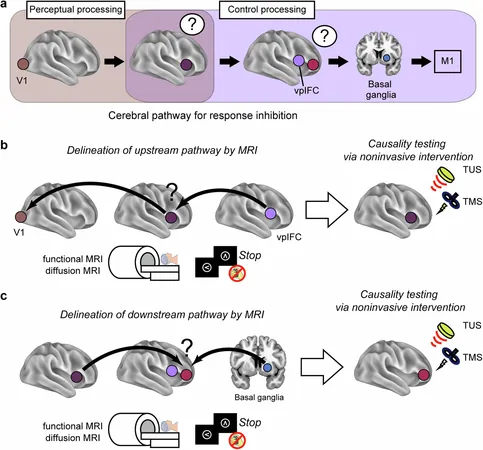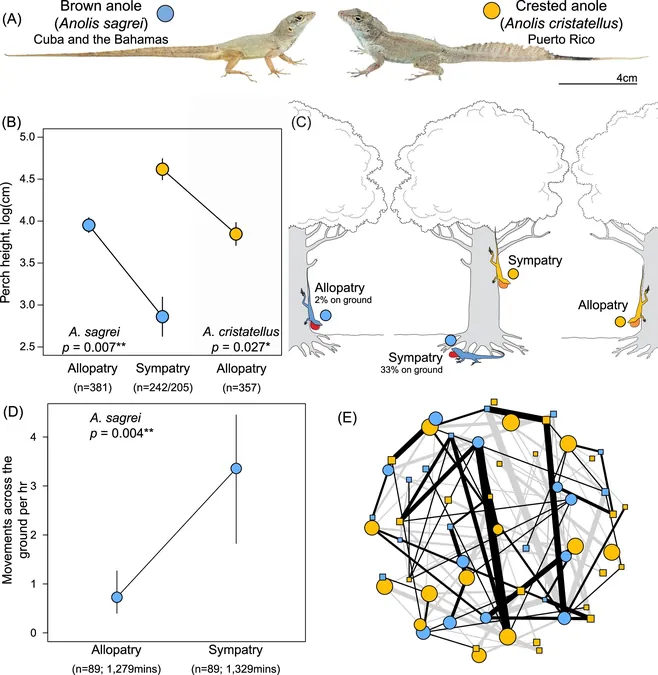
Breakthrough Study Reveals Secrets of the Human Brain's Impulse Control—Is a New Treatment for ADHD on the Horizon?
2024-12-05
Author: Siti
A groundbreaking study out of Japan has unveiled the complex neural pathways that govern our ability to control impulsive behaviors, offering promise for advancements in treating impulse control disorders such as ADHD and addiction. By employing cutting-edge neuroimaging and innovative noninvasive stimulation techniques, researchers have illuminated how different regions of the brain collaborate to inhibit unwanted actions.
This significant revelation enhances our understanding of human cognition—particularly the process of response inhibition, which allows us to pause and reconsider our impulses in crucial moments, such as the instant we see a stop sign. The mechanics behind this rapid shift from perception to action control are not only fascinating but carry profound implications for mental health treatments.
Scientists from Juntendo University, led by Dr. Takahiro Osada, conducted their meticulous research in a study published in *Nature Communications*. A total of 50 participants engaged in a stop-signal task, a pivotal exercise designed to evaluate response inhibition, while their brain activity was closely monitored through functional magnetic resonance imaging (fMRI). Researchers utilized transcranial magnetic stimulation (TMS) and transcranial ultrasound stimulation (TUS) to dissect the roles of key brain regions, such as the anterior insular cortex and inferior frontal cortex (IFC), tightening the focus on their contributions to inhibitory control.
The findings revealed a fascinating four-step neural pathway for response inhibition that includes visual processing in the primary visual cortex, sensory integration in the anterior insular cortex, action control in the IFC, and action execution through the basal ganglia and motor cortex. This sequential interaction underscores the brain’s ability to swiftly halt inappropriate actions.
The implications of this study extend far beyond mere understanding. With detailed mapping of the brain's circuitry involved in inhibitory control, researchers are now better poised to create targeted therapeutic strategies for conditions like ADHD and obsessive-compulsive disorder. Dr. Osada highlights, “Our exploration into these neural pathways could lead to noninvasive brain stimulation techniques designed to restore proper functioning within these circuits.”
Moreover, the insights gained from this research may also spur advancements in artificial intelligence (AI). By modeling AI systems on the same pathways responsible for impulsive control, we could develop smarter technologies that make decisions with remarkable accuracy, mimicking human cognitive functions like impulse regulation.
As the potential for revolutionary treatments for mental health conditions looms on the horizon, this study serves as a beacon of hope for those grappling with impulse control disorders. Future research may uncover even more brain regions involved in this complex web of inhibition, paving the way for innovative interventions that could reshape the landscape of mental health care.
In conclusion, this study represents a significant leap forward in our understanding of cognitive control and impulse regulation, emphasizing the crucial role of response inhibition in everyday life. As researchers continue to delve deeper into these neural mechanisms, the prospect of transforming treatment approaches for impulse control disorders becomes increasingly tangible, promising a brighter future for millions.



 Brasil (PT)
Brasil (PT)
 Canada (EN)
Canada (EN)
 Chile (ES)
Chile (ES)
 España (ES)
España (ES)
 France (FR)
France (FR)
 Hong Kong (EN)
Hong Kong (EN)
 Italia (IT)
Italia (IT)
 日本 (JA)
日本 (JA)
 Magyarország (HU)
Magyarország (HU)
 Norge (NO)
Norge (NO)
 Polska (PL)
Polska (PL)
 Schweiz (DE)
Schweiz (DE)
 Singapore (EN)
Singapore (EN)
 Sverige (SV)
Sverige (SV)
 Suomi (FI)
Suomi (FI)
 Türkiye (TR)
Türkiye (TR)